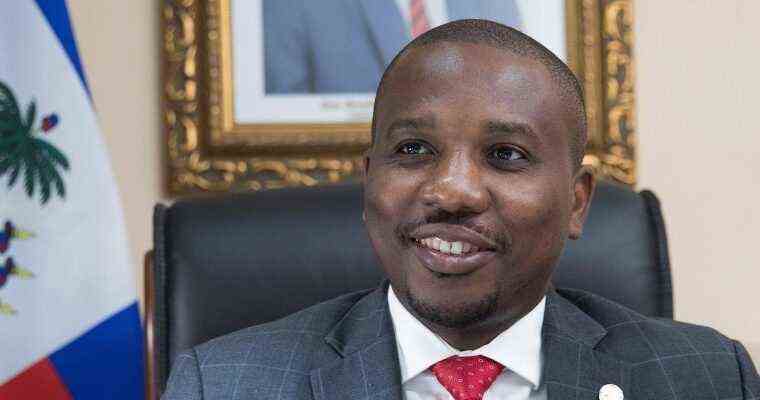When Claude Joseph said on Wednesday of this week that the police had the situation in Haiti under control, it probably sounded like mockery to many people in the Caribbean country – the bitterly poor country has long been sinking deeper into chaos.
Since the beginning of this week at the latest, the situation has now threatened to get completely out of control: A group of heavily armed attackers attacked the private residence of President Jovenel Moïse on Wednesday night. The head of state was killed and his wife shot. Who is behind the murder has not yet been clarified, just as it is unclear who is actually in power in Haiti.
In any case, Claude Joseph declared himself interim president on Wednesday morning – right after he had informed the public about the murder of Moïse and shortly before he imposed a state of siege on the country. “Let’s look for harmony in order to move forward together so that the country does not run dry in chaos,” said Claude Joseph in a televised address.
All of this raises questions, especially because it is not at all clear whether the man even has the authority to form a transitional government.
There was no longer any handover to the successor
Little is known about Claude Joseph, not even his age is certain. He is said to have studied politics in the USA, later he became Haitian ambassador to Argentina, and he also worked as a diplomat in Spain. He was appointed foreign minister in early 2020, and when the prime minister resigned in April that year, Joseph moved up. However, he only stayed in office for a short time. After only three months, Claude Joseph was to be replaced again, President Moïse announced this on Monday and appointed a respected doctor as his successor.
But there was no handover. Instead, Moïse was dead on Wednesday morning – and Claude Joseph was suddenly head of a self-appointed transitional government.
If the situation was confusing before, it is now completely confused and chaotic. Jovenel Moïse took office in 2017 after elections that had to be repeated because there were so many disagreements in the first round. As a result, allegations of corruption increased, at the same time Moïse delayed the parliamentary elections that were actually due. The result: it had no longer had a mandate since 2020. The further consequence: the president ruled by decree. Observers feared that the country was on the way back to dictatorship.
After the murder of Moïse, there is now neither a president nor a parliament in Haiti. And to top it all, the chairman of the Supreme Court died of Covid-19 in June.
Now the people in Haiti are wondering how things will go with their country. The President of the Senate could take over government affairs. A constituent assembly could also be set up, as the opposition has long called for. This would give Haiti a new political base, and the crisis would become an opportunity.
At the same time, Claude Joseph would have to ensure that new elections were scheduled if he took the first part of the word “interim president” seriously. So far, however, he has not indicated that this is a matter of concern to him; so there is already concern that the transitional government might try to cling to its newfound power. Haiti could plunge even further into chaos, and calls for intervention by the international community are being heard from the opposition. From which one can conclude: Nobody has the situation in Haiti under control at the moment. But on the contrary.

